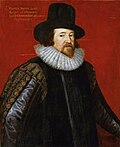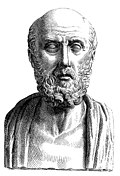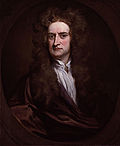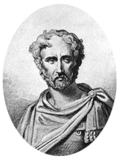
Back بوابة:تاريخ العلوم Arabic Portail:Histoire des sciences French Portaal:Wetenschapsgeschiedenis Dutch Portal:História da ciência Portuguese باب:سائنس جي تاريخ Sindhi ද්වාරය:නවීන විද්යාවේ ඉතිහාසය Singhalese Portal:Bilim tarihi Turkish Портал:Історія науки Ukrainian
The History of Science Portal
The history of science covers the development of science from ancient times to the present. It encompasses all three major branches of science: natural, social, and formal. Protoscience, early sciences, and natural philosophies such as alchemy and astrology that existed during the Bronze Age, Iron Age, classical antiquity and the Middle Ages, declined during the early modern period after the establishment of formal disciplines of science in the Age of Enlightenment.
The earliest roots of scientific thinking and practice can be traced to Ancient Egypt and Mesopotamia during the 3rd and 2nd millennia BCE. These civilizations' contributions to mathematics, astronomy, and medicine influenced later Greek natural philosophy of classical antiquity, wherein formal attempts were made to provide explanations of events in the physical world based on natural causes. After the fall of the Western Roman Empire, knowledge of Greek conceptions of the world deteriorated in Latin-speaking Western Europe during the early centuries (400 to 1000 CE) of the Middle Ages, but continued to thrive in the Greek-speaking Byzantine Empire. Aided by translations of Greek texts, the Hellenistic worldview was preserved and absorbed into the Arabic-speaking Muslim world during the Islamic Golden Age. The recovery and assimilation of Greek works and Islamic inquiries into Western Europe from the 10th to 13th century revived the learning of natural philosophy in the West. Traditions of early science were also developed in ancient India and separately in ancient China, the Chinese model having influenced Vietnam, Korea and Japan before Western exploration. Among the Pre-Columbian peoples of Mesoamerica, the Zapotec civilization established their first known traditions of astronomy and mathematics for producing calendars, followed by other civilizations such as the Maya.
Natural philosophy was transformed by the Scientific Revolution that transpired during the 16th and 17th centuries in Europe, as new ideas and discoveries departed from previous Greek conceptions and traditions. The New Science that emerged was more mechanistic in its worldview, more integrated with mathematics, and more reliable and open as its knowledge was based on a newly defined scientific method. More "revolutions" in subsequent centuries soon followed. The chemical revolution of the 18th century, for instance, introduced new quantitative methods and measurements for chemistry. In the 19th century, new perspectives regarding the conservation of energy, age of Earth, and evolution came into focus. And in the 20th century, new discoveries in genetics and physics laid the foundations for new sub disciplines such as molecular biology and particle physics. Moreover, industrial and military concerns as well as the increasing complexity of new research endeavors ushered in the era of "big science," particularly after World War II. (Full article...)
Selected article -
The history of artificial intelligence (AI) began in antiquity, with myths, stories, and rumors of artificial beings endowed with intelligence or consciousness by master craftsmen. The study of logic and formal reasoning from antiquity to the present led directly to the invention of the programmable digital computer in the 1940s, a machine based on abstract mathematical reasoning. This device and the ideas behind it inspired scientists to begin discussing the possibility of building an electronic brain.
The field of AI research was founded at a workshop held on the campus of Dartmouth College in 1956. Attendees of the workshop became the leaders of AI research for decades. Many of them predicted that machines as intelligent as humans would exist within a generation. The U.S. government provided millions of dollars with the hope of making this vision come true. (Full article...)
Selected image

An Experiment on a Bird in the Air Pump is a 1768 oil-on-canvas painting by Joseph Wright of Derby which depicts a recreation of one of Robert Boyle's air pump experiments. It shows the reactions of a group of onlookers to an experiment performed by a natural philosopher in which a bird is deprived of oxygen. Scientific curiosity overcomes concern for the bird. The central figure looks out of the picture as if inviting the viewers participation in the outcome.
Did you know
...that the word scientist was coined in 1833 by philosopher and historian of science William Whewell?
...that biogeography has its roots in investigations of the story of Noah's Ark?
...that the idea of the "Scientific Revolution" dates only to 1939, with the work of Alexandre Koyré?
Selected Biography -
Francis Willughby (sometimes spelt Willoughby, Latin: Franciscus Willughbeius) FRS (22 November 1635 – 3 July 1672) was an English ornithologist, ichthyologist and mathematician, and an early student of linguistics and games.
He was born and raised at Middleton Hall, Warwickshire, the only son of an affluent country family. He was a student at Trinity College, Cambridge, where he was tutored by the mathematician and naturalist John Ray, who became a lifetime friend and colleague, and lived with Willughby after 1662 when Ray lost his livelihood through his refusal to sign the Act of Uniformity. Willughby was elected as a Fellow of the Royal Society in 1661, then aged 27. (Full article...)
Selected anniversaries
- 1670 - Death of Niccolo Zucchi, Italian astronomer and physicist (b. 1586)
- 1786 - Death of Carl Wilhelm Scheele, Swedish chemist (b. 1742)
- 1792 - Birth of Gaspard-Gustave Coriolis, French scientist (d. 1843)
- 1799 - Birth of Mary Anning, British paleontologist (d. 1847)
- 1850 - Birth of Giuseppe Mercalli, Italian volcanologist (d. 1914)
- 1860 - Birth of Willem Einthoven, Dutch inventor and Nobel Prize laureate (d. 1927)
- 1873 - Birth of Hans Berger, German neuroscientist (d. 1941)
- 1894 - Death of August Kundt, German physicist (b. 1839)
- 1911 - Death of Williamina Fleming, Scottish-born astronomer (b. 1857)
- 1921 - Birth of Andrei Sakharov, Soviet physicist and activist, recipient of the Nobel Peace Prize (was not allowed to leave the Soviet Union to collect the prize) (d. 1989)
- 1923 - Birth of Armand Borel, Swiss mathematician (d. 2003)
- 1945 - Birth of Ernst Messerschmid, German physicist and astronaut
- 1956 - In the Pacific Ocean, Bikini Atoll is nearly obliterated by the first airborne explosion of a hydrogen bomb, part of Operation Redwing.
- 1964 - Death of James Franck, German-born physicist and Nobel Prize laureate (b. 1882)
Related portals
Topics
General images
Subcategories
Things you can do
Help out by participating in the History of Science Wikiproject (which also coordinates the histories of medicine, technology and philosophy of science) or join the discussion.
Associated Wikimedia
The following Wikimedia Foundation sister projects provide more on this subject:
-
Commons
Free media repository -
Wikibooks
Free textbooks and manuals -
Wikidata
Free knowledge base -
Wikinews
Free-content news -
Wikiquote
Collection of quotations -
Wikisource
Free-content library -
Wikiversity
Free learning tools -
Wiktionary
Dictionary and thesaurus
© MMXXIII Rich X Search. We shall prevail. All rights reserved. Rich X Search








































































